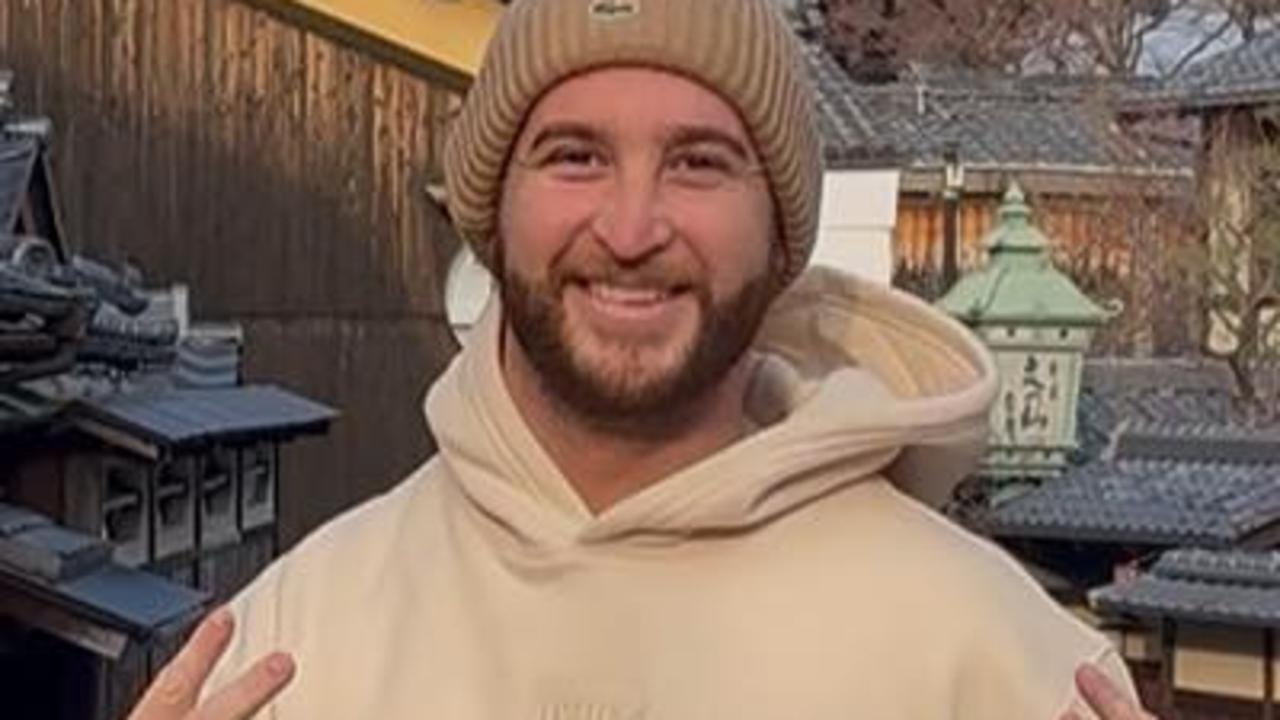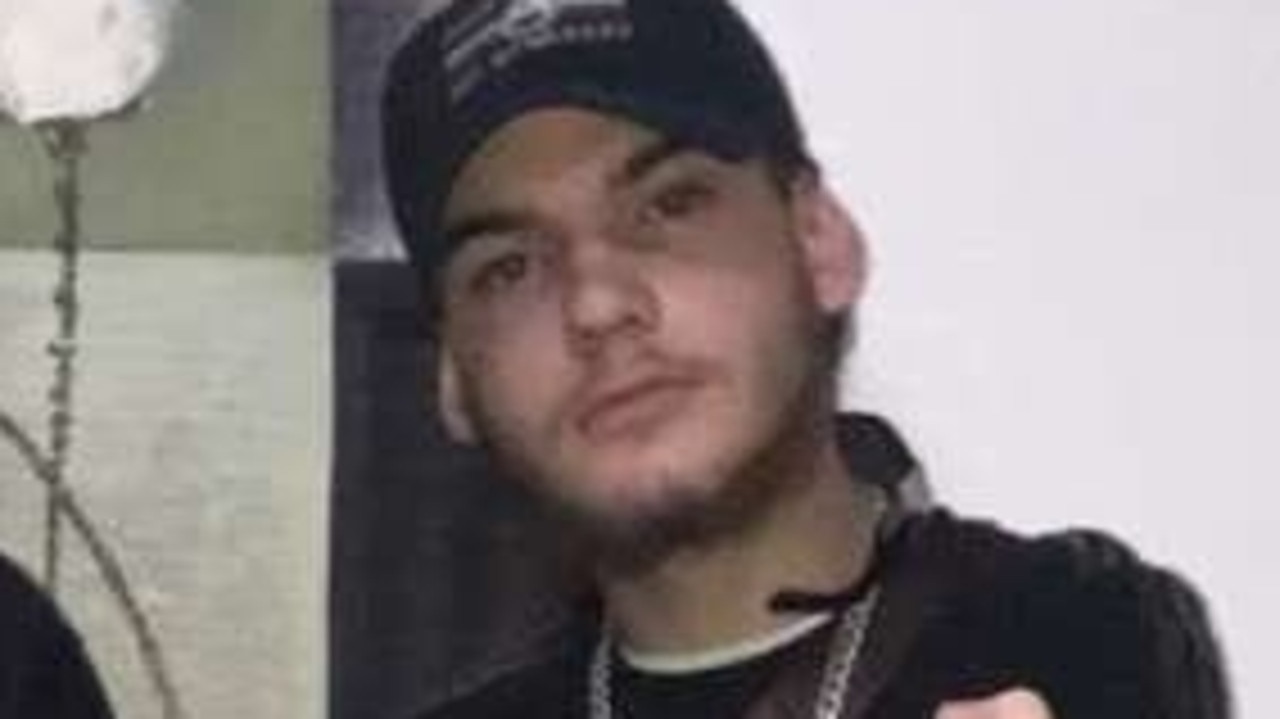Ex-SAS soldier Shane Gibbs choked his wife twice in brutal domestic violence attack on Gold Coast, domestic violence leaders question sentence
Leaders on the frontline of the Gold Coast’s domestic violence scourge say the community and courts need to stop making excuses for the poor behaviour of men – whether they are war heroes or not.
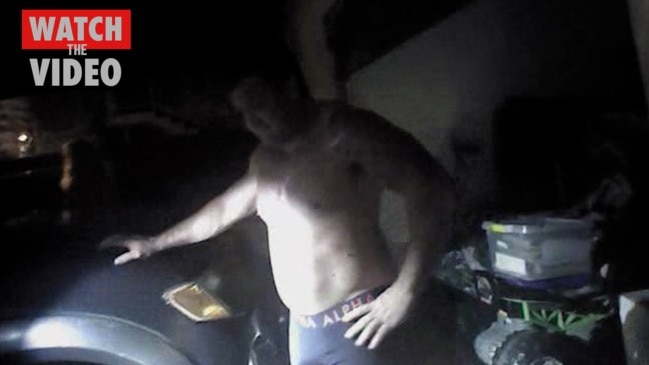
Police & Courts
Don't miss out on the headlines from Police & Courts. Followed categories will be added to My News.
LEADERS on the frontline of the domestic violence scourge say the community and courts need to stop making excuses for the poor behaviour of men – whether they are war heroes or not.
Support groups are furious that former SAS elite soldier Shane Gibbs was allowed to walk from court despite being found guilty of twice choking his wife.
In allowing him immediate parole in the Southport District Court this month, Judge Geraldine Dann said Gibbs had served his country, was suffering severe post-traumatic stress disorder (PTSD), prison would interrupt his rehabilitation and treatment, and that as an ex-SAS soldier he would be targeted by other prisoners.
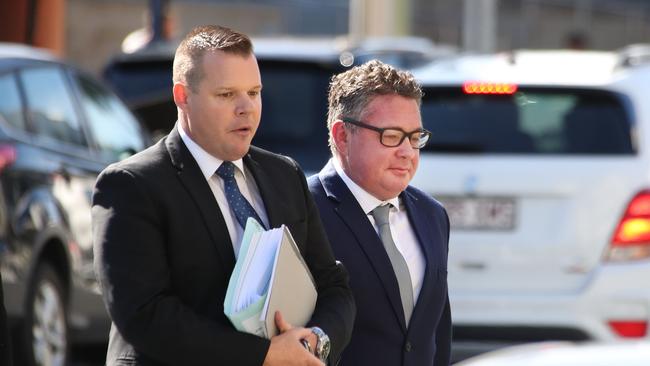
Former colleagues of Gibbs – including a Victoria Cross recipient – and Defence Force heavies have spoken of his exemplary military record and what he did for his country, and asked for a better understanding of veterans trying to refit into society.
“If anyone should be on trial it should be the Australian government,” one veteran told the Bulletin.
However, domestic violence advocates question what all facets of society have learnt in the nine years since the intimate partner killing of Allison Baden Clay, six years since the deaths of Tara Brown and Karina Lock, and in the three months since Kelly Wilkinson died.
“We are not taking these actions seriously,” Gold Coast Centre Against Domestic Violence director Di MacLeod said.
“I think (Gibbs) would see (the sentence) as if he has dodged a bullet and unfortunately she has been wounded.”
Ms MacLeod said Gibbs’ actions, not just his military career and mental health needed to be taken into account, as did the victim’s trauma.
“What about her PTSD?,” she said.
“It doesn’t matter who you are or what your profession is, if you have broken the law you face the consequences.”
Judge Dann said during sentencing: “(Choking) concerns behaviour which is recognised as both inherently dangerous but also as a predictive indicator in homicide,” she said.
“Domestic violence is unfortunately very prevalent in our community and is utterly deplorable and it is utterly unacceptable.”
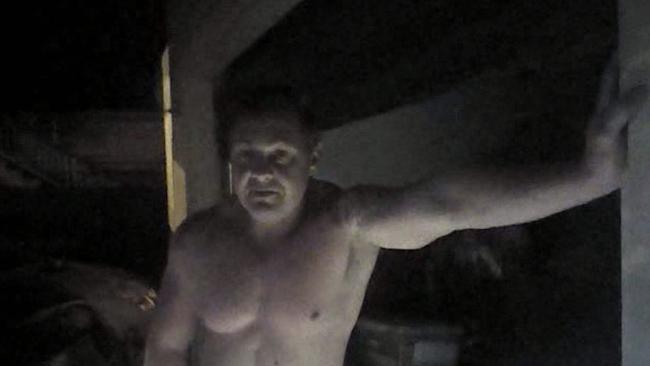
The victim in court quoted directly from Chief of Defence Force General Angus Campbell when in 2017 he spoke about how soldiers who committed domestic violence undermined their ability to execute their duties on the battlefield.
Veterans Care Association Padre Gary Stone, a retired Lieutenant Colonel, wrote a reference for Gibbs that tendered during court proceedings.
“Our nation owes him acknowledgment for the good he has done as a peacemaker,” he said in the reference.
“Apart from the marital issues he has struggled with he has an exemplary record of service.
“A custodial sentence would cause significant damage to his health, self worth and interrupt his psychology studies and ongoing repurposing.
“His ongoing recovery needs the companionship of like-minded individuals, not the type of people that populate our prisons.”
Padre Stone declined to comment further when contacted by the Bulletin.
FULL DIGITAL ACCESS: JUST $1 A WEEK FOR THE FIRST 12 WEEKS
Victoria Cross recipient Mark Donaldson, who was awarded the honour for his bravery in the same battle in which Gibbs was wounded – the Battle of Khas Uruzgan – also provided a reference.
His reference spoke solely about Gibbs’ military career and did not make mention of the domestic violence.
Gibbs was represented by Howden Saggers Lawyers partner Dave Garratt, who served in Afghanistan and acts for a number of former soldiers charged with criminal offences.
He represented ex-soldier Chris Carter who in 2017 was acquitted of murdering his former wife and her new partner.
PTSD Resurrected founder and veteran Andy Cullen declined to speak about specific matters, but did comment on veterans issues in general.
“I feel a veteran’s service should be taken into consideration and factored in when facing criminal charges in the same way that any member of society’s former career, accomplishments, achievements should be considered,” he said.
Mr Cullen said having PTSD was never an excuse for domestic violence.
“As members of society we are all accountable for our actions.”
He also called for more assistance for veterans, particularly those suffering ongoing mental health issues.
“I believe moral injury is the number one issue in Australia contributing to veteran suicide, family breakdown, drug and alcohol disorders and divorce.”
Mr Cullen said the government needed to provide support not only for soldiers, but their families.
He also called for more help from the community.
“We are part of the community and often feel disregarded by our community.
“We need to support each other. That may require better dialogue and education on what people do in the military and why.”
Western Australian SAS Association state president Troy Simmons also gave a court reference for Gibbs, describing his competence as a soldier.
“I know Shane is deeply remorseful for his behaviour in the past and the impact it has had on (his family),” he wrote.
“He is genuinely turning his life around and is motivated to help others in a productive way based on his experiences.”
‘You’re dead’: Ex-SAS soldier’s chilling threat to wife
A WOMAN screams in terror, begging for her tormentor to stop … apologising repeatedly.
“You’re dead,” her husband replies, cold and hard amid her cries for help.
The chilling words and chaos was captured on a triple-0 call about 1.20am on August 20, 2018 by a woman frightened her former SAS soldier husband was about to kill her.
As emergency services responded to the woman’s call, Shane Gibbs would strangle his wife twice. Her vision blurred and she wet herself in fear.
When police arrived minutes later, the woman walked out of the garage, past police and hid behind a neighbour’s mailbox.
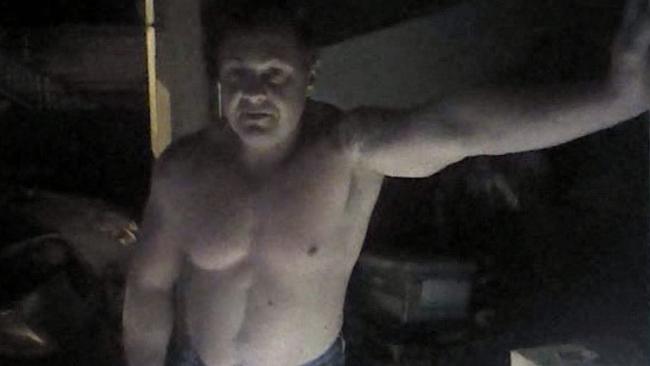
Gibbs, shirtless, asked police if he could put pants on, before returning.
As officers spoke Gibbs crossed his arms and casually leaned a hand on the wall.
“I’m just a bit in shock,” he said.
Metres away, the woman nursed bruising and bloodshot eyes.
This month in the Southport District Court she spoke of that night and the hangover of other alleged abuse from years gone.
“I want to make one thing very clear,” the woman said. “You nearly killed me and it still haunts me every single day.
“It will never leave me. What you did all those years and even now is a choice.”
The woman spoke about how she would barricade doors and windows, hide household items that had cords so they could not be used to strangle her and ripped holes in pillows so she could breathe if smothered.
Gibbs, now 50, was found guilty of two counts of choking after a three-day trial in March.
He was sentenced this month to three years’ prison, but will not spend a day behind bars.
Judge Geraldine Dann gave him immediate parole release saying Gibbs had served his country, was suffering severe post-traumatic stress disorder (PTSD) and prison would interrupt his rehabilitation and treatment and that as an ex-SAS soldier he would be targeted by other prisoners.
FULL DIGITAL ACCESS: JUST $1 A WEEK FOR THE FIRST 12 WEEKS
“I also find the evidence supports that the PTSD and physical injuries would mean that a sentence that involved actual imprisonment would weigh more heavily on you than a normal offender,” she said.
“There is evidence from your psychiatrist that the current plan is the appropriate plan and that there is an extremely high degree of probability your mental condition would deteriorate in absence of your current treatment and current plan.”
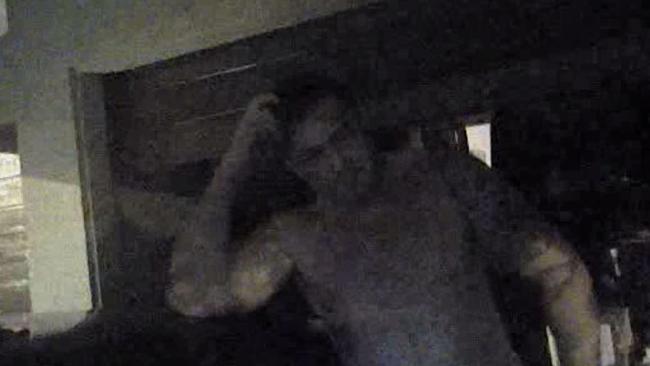
Judge Dann said Gibbs’ attack on his wife left the woman “terrified”.
“(The choking) concerns behaviour that is recognised as not only inherently dangerous but also a predictive indicator of escalation in domestic violence offending, including homicide,” she said.
“Domestic violence is unfortunately very prevalent in our community and is utterly deplorable and utterly unacceptable.”
Gibbs was also ordered to pay the woman $5000 in compensation.
Gibbs met his wife on the Gold Coast in 2005 and they would soon start a relationship.
The pair moved to Perth where Gibbs was based as a member of the elite SAS regiment, designed to be sent into the most tenuous and high-risk conflict scenarios.
Gibbs would go on to complete multiple tours in Iraq and Afghanistan.
On September 2, 2008 he was involved in a five-hour fire fight, during which he was shot severely in the chest.
He bled for hours in a Jeep before other soldiers were able to get him and other wounded soldiers to safety.
In that same battle, fellow SAS soldier Mark Donaldson would be awarded a Victoria Cross for his actions under fire.
Gibbs’ wife was told he may not live and was immediately flown to Germany where Gibbs was airlifted for treatment.
The woman told the court that during an argument on Melbourne Cup day 2009, Gibbs pushed her head into a car window and when they arrived home choked and punched her.
Gibbs denied the incident and the court was shown service records showing he had been on an SAS training course at the time.
Gibbs was deployed to Afghanistan again in 2012.
He would later be diagnosed with post-traumatic stress disorder and was medically discharged from the SAS in 2015.
The woman told the court the pair had moved to Thailand in 2016.
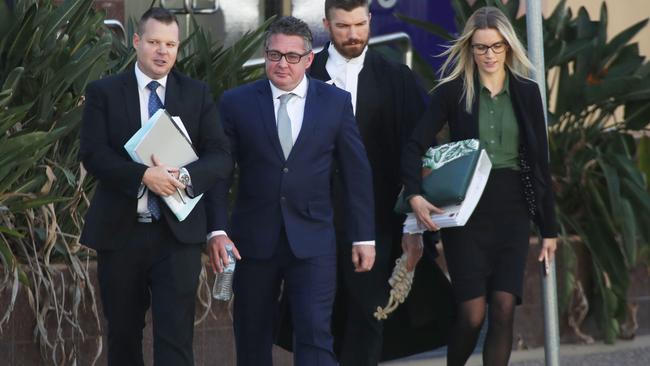
In 2017, she returned to Perth and Gibbs soon followed.
The woman described their relationship at that time as violent.
She alleges Gibbs told her: “You have seen nothing yet, I don’t care if I spend the rest of my life behind bars, I will cut your head off.”
On another occasion, he is accused of saying: “You will sleep in the same bed as me. I will drag you there and that will be very frightening for you.”
The court was told Gibbs also threatened her life and told her she would “never see it coming” and to not call police.
He allegedly said: “I expect them to turn up tonight, there will be dead people everywhere because I will kill everywhere.”
The woman said she hid for about two weeks before returning.
At one stage she took $40,000 from their joint account in an effort to leave him.
On one occasion police were called to a domestic violence incident in their Perth home, arriving with a fully armed tactical team.
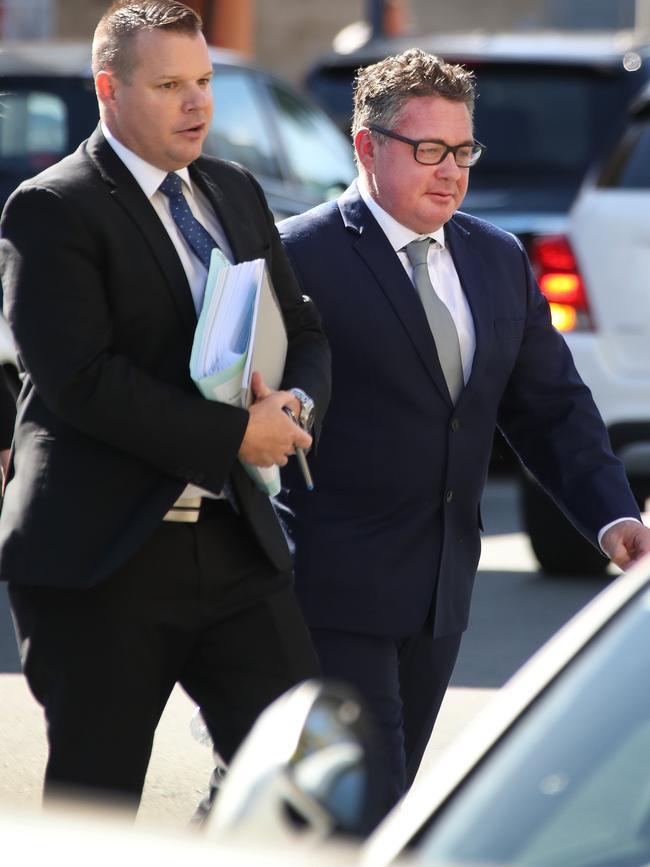
Gibbs claimed in court this gave him a fear of being shot by police.
A domestic violence order was put in place.
The couple moved to Queensland in October 2017.
The night she was choked on the Gold Coast, the woman alleges she had found explicit sexual messages between Gibbs and another woman.
She confronted him and the argument began.
She told the court she asked him to leave and then there was a change in his body language that frightened her.
“He has this glare in his eyes and it’s like he glazes over and I knew I was in trouble,” she told the court.
“I knew I had seen that look so many times and I thought, ‘what am I going to do here’.”
The woman said she told Gibbs she was going to call police, dialled triple-0, but did not know if the call connected before he attacked “hard and fast”.
It did.
A recording of the call played to the court was filled with screams, the sounds of struggle and chaos.
The first clear words are Gibbs saying: “You’re dead.”
The woman is heard pleading with him to stop and screaming.
“Why did you do this? Why did you do this to me?,” Gibbs asks.
The woman replied: “I’m sorry.”
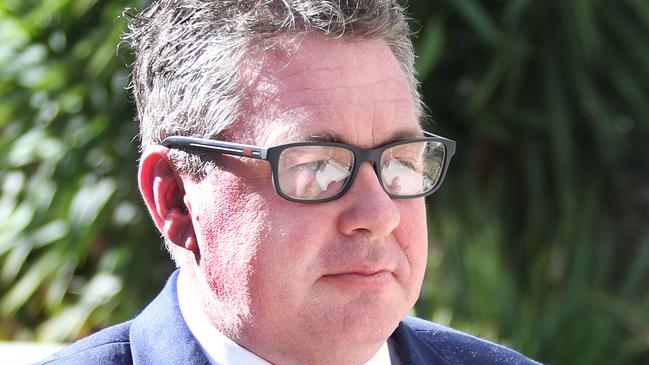
Gibbs said: “No you are not. You have done this to me before.”
The screaming continued.
The woman said she was on her stomach when Gibbs put his hand over her mouth.
She managed to fight him off by grabbing his testicles.
She says she then felt pressure on her throat by something hard and she almost blacked out.
He allegedly threatens to “hunt down and kill” his wife.
The woman said she had moved 10 times since the incident, trying to ensure Gibbs does not know where she lives.
When Gibb’s barrister David Funch, instructed by Howden Saggers Lawyers, asked her about where she lived and naming the city, the colour appeared to drain from her face.
“How did you know that?” she asked.
Gibbs told the court he was in the process of leaving their home when the woman called police.
“I believed that if I did not stop her from ringing police, I was going to be shot,” he said.
“If police did come to the house, I was going to be harmed as well as (the woman).”
Gibbs said that he thought at the time of the Gold Coast incident the only way to stop himself from being shot was to stop his wife from calling police.
“I was trying to restrain her,” he said.
“I tried to take the phone … we both grabbed hold of each other and we crashed down very hard.”
Gibbs said prior to him leaving the military they had “normal arguments like most couples” but the verbal arguments escalated after his discharge.
He said he was “scared shitless” when he left the home to talk to police.
The jury ultimately found Gibbs was guilty of choking his wife twice on that day in August.
In a moving victim impact statement the woman read to the court via phone.
She often broke down in tears.
“I have had to ask myself how did I keep going back to you, after all the times you abused me,” she said.
“It is because you kept telling me you have changed, you won’t hurt us, you guarantee our safety, that you were seeking professional help, when in fact, you weren’t.”
The woman said she had not seen any evidence Gibbs was remorseful but still lives in fear of him.
“You were the one who was supposed to protect us,” she said.
“Not the one we needed protection from.”

